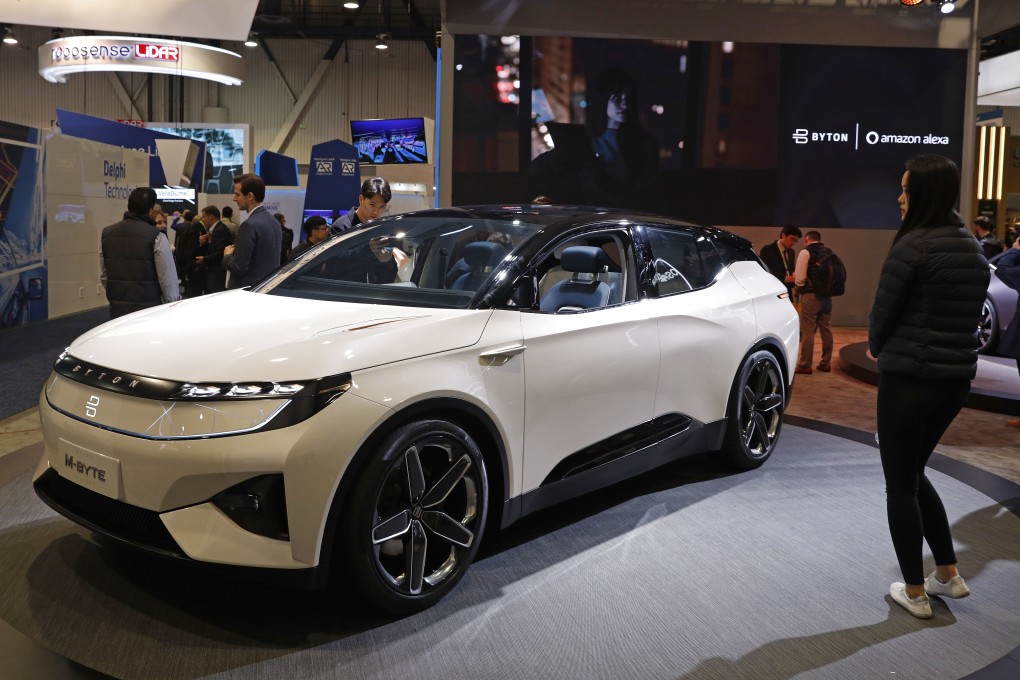Byton, Chinese EV start-up planning US foray, halts operations for 6 months
- The suspension starts on July 1, closely held Byton told employees in an email
- Byton invited employees to resign in writing by June 30 and said it is making efforts to obtain funding to pay salaries owed to workers

Byton, the Chinese electric vehicle (EV) start-up that has plotted a US entry for years, is suspending all domestic operations and furloughing staff after the coronavirus pandemic made it tougher to get its business off the ground.
The suspension starts on July 1 and is set to last six months, closely held Byton told employees in an email seen by Bloomberg News.
The company invited employees to resign in writing by June 30 and said it is making efforts to obtain funding to pay salaries owed to workers. Those who resign would have priority in being paid.
Home to the world’s biggest EV market, China encouraged companies to get into the business with subsidies and other support, spurring fears of a bubble.
New carmakers have come under pressure since the government started scaling back that aid last year and as Tesla’s locally built sedans grabbed more market share.